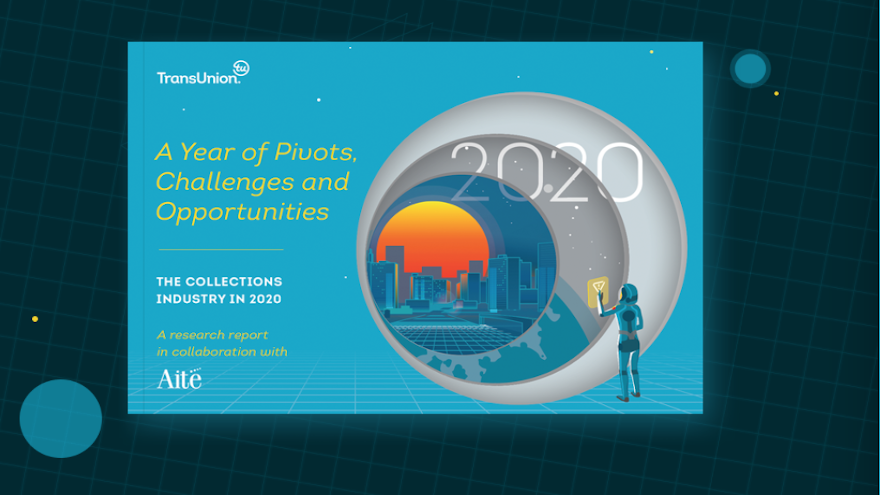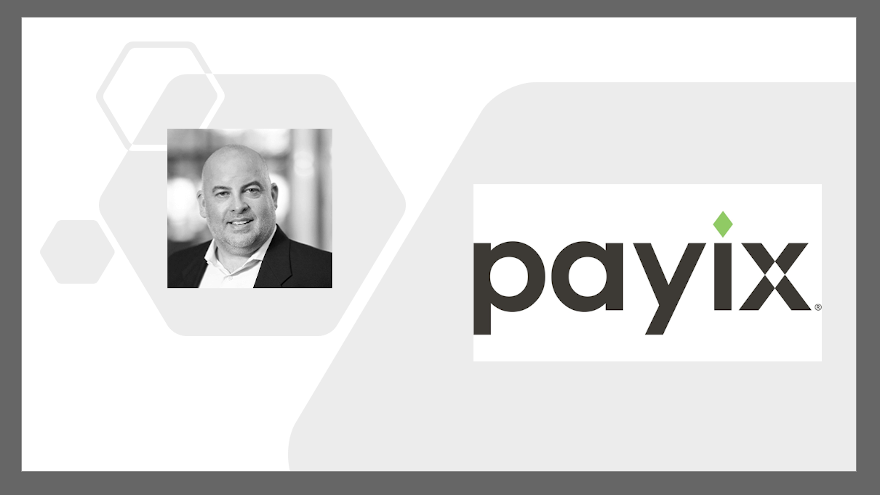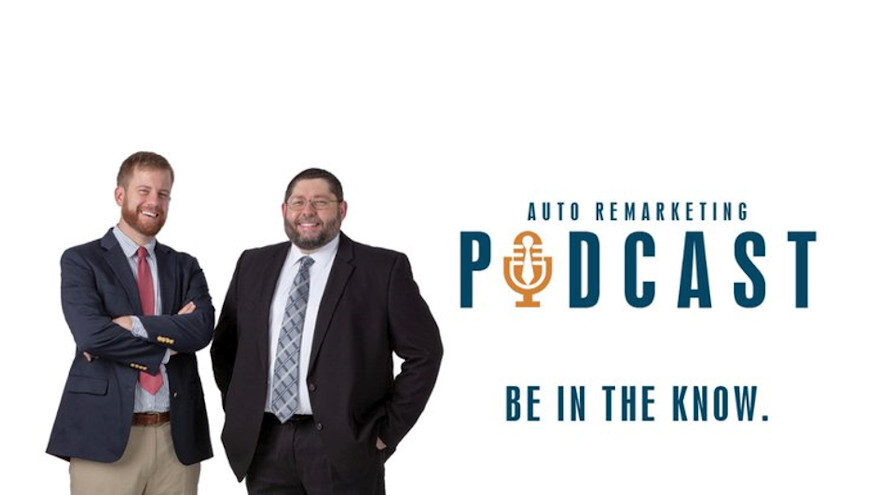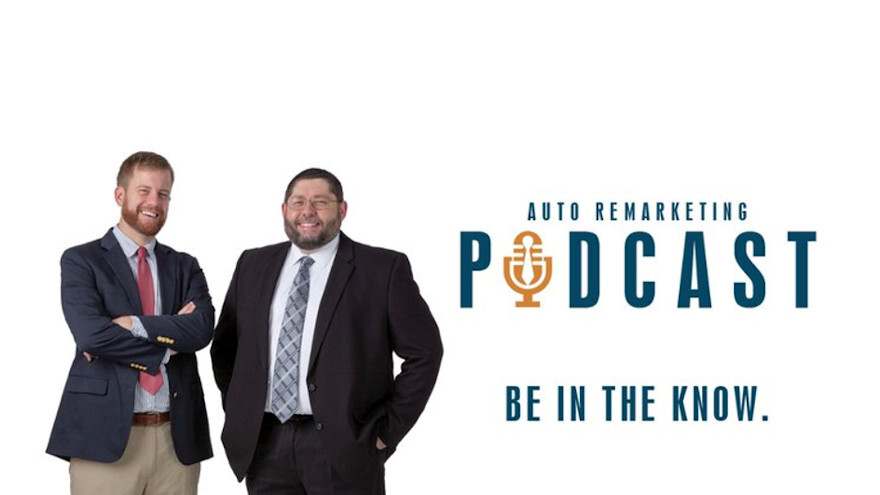LocateSmarter’s Alex “SkipGuru” Price and RISC are joining forces not just to help professionals sharpen their skip-tracing skills, but also to generate financial resources for a cause connected to something more valuable than vehicles.
To support the Innocent Lives Foundation (ILF), RISC and Price said they will donate 100% of the sales proceeds of the Skip-Tracing Certification Program to ILF during February and March.
Price highlighted in a news release that ILF is a nonprofit organization that utilizes the unique skillset of computer security and open-source intelligence (OSINT) professionals to unmask child predators on the internet and help bring them to justice.
According to Price and ILF, one in 10 children will be a victim of sexual abuse before their 18th birthday. ILF is committed to protecting children’s innocence as the organization’s experts hunt down who they deem to be the “worst of the worst” — pedophiles, sexual predators and human traffickers — while also providing critical evidence to U.S. and international law enforcement agencies.
Since its inception, the ILF has had more than 239 cases accepted by law enforcement. Price said the impact the case support has had on children’s lives is immeasurable.
“Working with the ILF is a great passion of mine, and I intend to put all my resources and contacts into helping their mission,” Price said. “As parents of two great kids, my wife and I have been blessed never to have had the experience of any violent crime in our family. It is hard for us even to imagine the torture these poor children have endured, so if one dime of my certification program sales or one friend volunteers to help the ILF to save children, then my entire career will be worth it.”
Price is the creator of RISC’s Skip-Tracer Certification Program that is widely used by the collateral recovery industry as well as private investigators, bounty hunters, news reporters and others.
Price has been skip-tracing and advising the auto-finance industry for more than 30 years on tracing individuals who are no longer making timely installment payments for their vehicles.
Now professionals involved in collections and recoveries can obtain the education, become a certified skip-tracer and support ILF, too.
“Partnerships with individuals like Alex Price and companies such as RISC are vital to our mission for many reasons," ILF chief operating officer Scott McCombs said in the news release. “First off, it can cost up to $10,000 for the ILF to create and deliver a case to law enforcement. And, as a 501(c)3, we rely solely on generous donations to continue our vital work.
“In addition to fundraising initiatives, these partnerships are an essential way that our organization can gain new exposure to groups and individuals who align themselves with our mission,” McCombs added.
Price and ILF plan to discuss the organization’s ongoing efforts during a live-streamed conversation set for Tuesday at 7 p.m. (ET). The online event will be available here.
“I know many of the best investigators in the world, and I challenge each of you to find out how you can help save a child. God bless anyone that is able to contribute in any way,” Price said.
Alex “SkipGuru” Price returned to the Auto Remarketing podcast to discuss one of the subjects he knows best: skip-tracing.
Now the director of training and development for LocateSmarter, a data and analytics company, Price described how the pandemic has impacted collections and skip-tracing while also reflecting on how tried and true methods continue to be crucial amid COVID-19.
To listen to the entire conversation, click on the link available below, or visit the Auto Remarketing Podcast page.
Download and subscribe to the Auto Remarketing Podcast on iTunes or on Google Play.
A new report by TransUnion and Aite Group examined the entire collections world, highlighting that outstanding balances in all credit segments declined by more than $8 billion from the end of 2019 to the midpoint of 2020.
And experts see more changes on the horizon, especially when considering how the pandemic pushed industry consolidation.
The report titled, “A Year of Pivots, Challenges, and Opportunities: The Collections Industry in 2020,” explored how the COVID-19 pandemic has impacted the collections industry and what may be in store for 2021.
Report authors explained the pandemic played a major role in disrupting the consumer credit landscape in 2020. From a collections standpoint, TransUnion and Aite Group acknowledged the industry has been particularly impacted by the decline in overall credit accounts as well as the first drop in household debt levels since 2014.
Experts also mentioned accommodation programs also have delayed some accounts that would have otherwise gone delinquent from defaulting. As a result, they said collections activity has been much more muted, evidenced by the substantial decline in overall balances.
“Consolidation in the collections industry has taken place for the better part of the last decade, and the COVID-19 pandemic helped accelerate that trend. Less credit activity, smaller balances and a large number of accounts in accommodation status certainly slowed collections activity, but the pandemic brought on a whole new set of challenges. Most notably, work-from-home mandates that many collectors were not equipped to handle,” said Glen Goldstein, executive vice president of diversified markets at TransUnion.
“Collections is a major part of the consumer credit ecosystem, and our report highlights that we will see more normal conditions in 2021, which we believe will benefit the overall market,” Goldstein continued in a news release.
The report found that the number of firms that make up the third-party collections industry has steadily declined in recent years. In fact, between 2016 and 2020, TransUnion and Aite Group discovered the number of third-party collection firms is expected to shrink by 15% to 6,699 companies.
Even as fewer collections agencies now exist, experts found that their efficiencies are increasing.
The report indicated profit margins are increasing for collectors as 68% say they have either received payments in full, settlements in full or made partial payment arrangements. This is an increase from 58% in 2019.
TransUnion and Aite Group noted that collectors say the tools they are using the most to secure payments include: manual skip tracing, collections management systems (CMS) and online portals.
More modernization may be arriving
In addition to the evolving consumer credit market, the report mentioned new guidelines set by the Consumer Financial Protection Bureau will likely have the greatest impact on the collections industry in 2021.
Experts said the request of the CFPB to have the industry modernize its practices will be of special importance. The report found that larger firms are most likely to embrace a varied and innovative toolset and utilize new forms of communication.
In 2020, over one in five collectors (22%) said they reached out to consumers via text — an example of a new form of communication within the industry. While this approach pales in comparison to traditional modes such as letter (93%), telephone (87%) and email (59%), the expectation is for texting to continue to rise.
The forms of communication cited most by collections executives when asked which they will consider adding in the next two years, included:
— Email 45%
— Text/SMS message: 45%
— Chatbot, digital assistant or other artificial intelligence: 22%
However, report authors pointed out that efforts to modernize may be somewhat slow when considering only 11% of collections executives cited texting as the most effective way of communicating with consumers. Telephone manual dialing (44%), telephone auto dialers (31%) and letters (30%) were ranked as the best options, according to the report.
“As the collections industry looks ahead to 2021, one of the few positives from 2020 is that modernization of collections practices may become the norm for more large and small agencies. Those collections agencies that make the effort to modernize will likely be the ones that can thrive in 2021,” Goldstein said.
The entire report can be found on this website.
The pandemic and industry challenges created by COVID-19 didn’t slow Payix.
This week, the provider of white-labeled collection tools and payment processing services to finance companies and loan servicers announced record-breaking achievements in 2020 in spite of those significant, well-known macro-economic headwinds. Among the accomplishments Payix highlighted are:
• The company has achieved a three-year track record of triple-digit growth in payment processing volume, revenue and new client activations, while maintaining net customer retention rates exceeding 100%.
• Having accomplished positive cash flow and with ample liquidity, Payix said it is well-positioned to act opportunistically in 2021, actively exploring market expansion to support an aggressive growth trajectory.
• Payix also said that the company plans sustained product investment in 2021, expanding its differentiated lender-centric, consumer-friendly communication and payments platform, to encompass more aspects of the lending life cycle.
During a virtual meeting mentioned in a news release, Payix chief executive officer and co-founder Chris Chestnut said: “I’m so proud of what the Payix team was able to achieve in 2020 while facing personal and professional challenges. By working together, staying focused and showing kindness, we ended the year on terrific footing.
“Heading into 2021, I’m honored to be leading such a proven team of people, capable of facing and overcoming almost any obstacle imaginable,” Chestnut added.
For more information about its products and services, contact Payix at [email protected].
The most recent TransUnion financial hardship survey conducted in late October pinpointed how short of funds individuals and families financially impacted by the pandemic are toward meeting their monthly obligations.
According to the online survey of 3,100 adults conducted by TransUnion in partnership with third-party provider Qualtrics Research Services, these households land $886.70 short of keeping up with line items such as installment contracts for vehicles, a mortgage or rent, utilities and other necessities.
The TransUnion survey also highlighted the top six specific reasons why. They included:
— I own a small business that closed/orders dried up: 16%
— I’ve lost my job: 19%
— I/we relied on part-time job to supplement income: 18%
— Partner lost job/reduced work hours: 25%
— My work hours have been reduced: 42%
— Other: 13%
Among the participants, 24% told TransUnion they would not be able to maintain their vehicle payments. That reading is lower than other categories such as credit cards (38%), utilities (35%) and mobile phone bill (30%).
To pay bills and loans, TransUnion reported 32% of impacted consumers state they plan to use money from savings. The latest installment of the survey also showed borrowing money from family and friends remains flat at 23%.
When further broken down, TransUnion noted that 53% plan to borrow from friends, 51% from parents, 44% from other family members and 22% from a crowdfunding site.
TransUnion went on to mention that consumers continue to indicate they will rely on credit to pay their bills and loans at the highest levels of this study. One-fifth plan to use credit cards or balance transfers, 16% plan to take out personal loans and 13% intend to open new credit card.
With such a high volume of consumers currently navigating financial challenges, DRN recently reiterated in a company blog post about how it’s trying to help finance companies with its data before a vehicle repossession becomes necessary.
Strategic account manager Jared Kirby recapped that one of DRN’s first enterprise clients was a large captive finance company.
“They were long-time users of DRNsights’ vehicle location data in their repossession processes but wanted to brainstorm how they might use it pre-repo to make better repo decisions,” Kirby wrote.
“We partnered with this client to pull DRN data into their behavioral scoring model to help them make better decisions on if and when to repossess vehicles. We started by looking at a handful of accounts that were nearing repo stage and saw that some had very consistent license plate scans,” he continued. “This makes those vehicles easy to find and, in some cases, meant this lender could easily contact the borrower and secure payments or create payment arrangements.
“This is always a better outcome than repo — the borrower stays in their car and the lender receives its payments and avoids a costly repossession,” Kirby went on to note.
The Consumer Financial Protection Bureau offered collections and compliance professionals some light reading just before the weekend. It’s mere a 653-page document to update a regulation first passed four decades ago that has taken regulatory officials seven years to get to this juncture.
On Friday, the bureau issued its final rule to restate and clarify prohibitions on harassment and abuse, false or misleading representations, and unfair practices by debt collectors when collecting consumer debt. The regulator explained the rule focuses on debt collection communications and gives consumers more control over how often and through what means debt collectors can communicate with them regarding their debts.
The CFPB added that the rule also clarifies how the protections of the Fair Debt Collection Practices Act (FDCPA), which was passed in 1977, apply to newer communication technologies, such as email and text messages.
The entire new rule can be downloaded on this website.
Initial industry reaction to this rule seemed positive.
“AFSA and its members appreciate the time and consideration put forward by the CFPB in developing its debt collection rules under the Fair Debt Collection Practices Act (FDCPA),” American Financial Services Association senior vice president Celia Winslow said in a statement.
“Key to this rulemaking was ensuring that creditors would have the ability to contact their customers and work with them to remain current or to assist them if they faced hardships,” Winslow continued. “We have seen how crucial this flexibility can be over the past seven months, and focusing on third-party debt collectors in this rulemaking both protects consumers and means efficient, expeditious resolution by creditors, which in turn also benefits their customers.”
In its own news release, the CFPB pointed out that the rule is the result of a deliberative, thoughtful process spanning more than seven years and reflects engagement with consumer advocates, debt collectors, and other stakeholders.
Further, in developing the final rule, the bureau said it considered the more than 14,000 comments received during the public comment and rulemaking process.
As a result of this feedback, the regulator noted that the rule establishes a presumption on the number of calls debt collectors may place to reach consumers on a weekly basis. A debt collector is presumed to violate federal law if the debt collector places telephone calls to a particular person in connection with the collection of a particular debt more than seven times within seven consecutive days or within seven consecutive days of having had a telephone conversation about the debt, according to the new rule.
The CFPB said that the rule also clarifies how consumers may set limits on debt collection communications to reflect their preferences and the limits on communicating with third parties about a consumer’s debt. The rule requires debt collectors who communicate electronically to offer the consumer a reasonable and simple method to opt out of such communications at a specific email address or telephone number.
The rule also provides that consumers may, if the debt collector communicates through a medium of electronic communications, use that medium of electronic communications to place a cease communication request or notify the debt collector that they refuse to pay the debt.
The bureau went on to mention the rule further clarifies that the FDCPA’s general prohibition on harassing, oppressive or abusive conduct applies to telephone calls as well as other communication media, such as email and text messages, and provides examples demonstrating how the prohibition restricts emails and text messages. It also generally restates the FDCPA’s prohibitions regarding false, deceptive, or misleading representations or means and unfair or unconscionable means, according to the CFPB.
Officials closed by addressing one of the topics on which the bureau acknowledged that it received a great deal of feedback.
The bureau said it is not finalizing the proposed safe harbor for debt collectors against claims that an attorney falsely represented the attorney’s involvement in the preparation of a litigation submission. Officials noted that provision was proposed to bring greater clarity to this issue but, after receiving questions and comments from many stakeholders concerning the proposal, the bureau said it has decided not to finalize that provision.
“With the vast changes in communications since the FDCPA was passed more than four decades ago, it is important to provide clear rules of the road,” CFPB director Kathleen Kraninger said in the news release.
“Our debt collection rulemaking provides limits on debt collectors and provides clear rights for consumers. With this modernized debt collection rule, consumers will have greater control when communicating with debt collectors.”
The CFPB added the final rule also contains provisions on disputes, and record retention, among other topics. The bureau said it intends to issue a second debt collection final rule focused on consumer disclosures in December.
With the demands on call centers even more intense nowadays, TCN rolled out a platform update this week to help contact centers and collection agencies worldwide, especially as representatives might be working at home.
TCN highlighted its platform update with Room 303 can allow for “easy and seamless” agent-to-agent and agent-to-manager communication. The company said Room 303 is built directly into TCN’s software, making collaboration convenient for agents and managers in call centers.
“There has been high demand for an internal chat feature for a while now,” TCN chief technology officer and co-founder Jesse Bird said in a news release.
“TCN is happy to provide agents with an effective way to ask questions or receive help from a manager without switching applications. Room 303 will be able to help improve communication, which is especially valuable with the recent increase of agents working from home,” Bird continued.
Key benefits of TCN’s Room 303 include:
—Shared rooms and conversations: Room 303 can allow for multiple shared channels and conversations that can allow users to customize the name and which people are in each channel.
—Reduce Interruptions: Room 303 can eliminate the need for putting calls on hold while an agent gets help from a manager. Calls can continue seamlessly while agents find answers they need with the integrated chat application.
—Centralized Work: Room 303 can provide a centralized source for agents and managers to turn to for performance improvements and communication. Centralizing work can help organizations quickly implement decisions and target issues.
—Better Customer Service: Room 303 can help organizations provide a better customer experience by reducing average handle time (AHT). Resolving issues and answering inquiries in a timely manner can improve customer satisfaction.
TCN reiterated that its cloud-based call center software is a cost-effective, advanced suite that can eliminate the need for complicated hardware.
“The cloud platform makes it extremely easy to deploy around the world and implement for at-home agents,” the company said. “This has proven useful during the COVID-19 pandemic with many call centers and organizations adjusting to working from home.
“Switching from on-premise to cloud software helps improve connectivity between agents and customers, while also increasing efficiency without the need for additional staff,” the company continued. “The new Room 303 feature will continue helping companies maintain customer service throughout changes and transitions.”
To learn more about TCN’s Room 303, go to this website.
REPAY chief revenue officer Susan Perlmutter explained how collections departments likely are doing even more hand-holding as this turbulent year continues.
During this episode of the Auto Remarketing Podcast, Perlmutter also described the potential scenes inside finance companies nowadays as executives and managers work with struggling customers while also trying to keep the firm’s viability intact.
To listen to the entire conversation, click on the link available below, or visit the Auto Remarketing Podcast page.
Download and subscribe to the Auto Remarketing Podcast on iTunes or on Google Play.
Payix co-founders Chris Chestnut and Preston Cecil made their debut on the Auto Remarketing Podcast and shared an array of observations and anecdotes from their clients about how finance companies are handling collections during the coronavirus pandemic.
Chestnut and Cecil also projected what factors could impact collections most during the remainder of this turbulent year.
To listen to this episode, click on the link available below, or visit the Auto Remarketing Podcast page.
Download and subscribe to the Auto Remarketing Podcast on iTunes or on Google Play.
Repay Holdings Corp. (REPAY) and Inovatec Systems Corp. now are working together to help finance companies with collections and other segments of their businesses connected with gathering payments from contract holders.
The provider of vertically integrated payment solutions recently announced a partnership with the provider of cloud-based lending solutions for all financial institutions.
As the proprietary payment platform of choice for Inovatec, REPAY highlighted that it now can enable lenders and finance companies on the Inovatec system to securely accept debit cards, credit cards, and ACH payments through its digital suite of consumer-facing payment channels, including text-to-pay, Interactive Voice Response (IVR) phone pay, the REPAY mobile app and online payment portals.
With its strength in business process automation, Inovatec’s configurable loan servicing and customer engagement platform can provide full servicing capabilities and portfolio analytics while allowing businesses to create customized processes and workflows throughout the lifecycle of a loan or lease.
“Inovatec’s extensive experience across automotive, equipment, and consumer sectors, along with its strong presence in the United States and Canada, makes this a valuable and exciting partnership to embark on,” REPAY chief revenue officer Susan Perlmutter said in a news release.
“These critical times have proven how important it is for lenders to offer convenient, easily accessible digital payment solutions to their customers to help reduce friction in the loan origination and repayment processes,” Perlmutter continued.
Inovatec’s cloud-based lending solutions for the automotive industry can streamline the process of submitting applications to finance companies. Combined with REPAY’s transaction processing platform, Inovatec insisted it now can ensure an optimal customer experience with a turnkey, fully digital solution that can be rapidly deployed end-to-end.
“We look forward to our partnership with REPAY and are thrilled to now have the ability to provide fast and secure payment processing solutions to our clients,” said Bryan Smith, head of customer growth and strategic partnerships at Inovatec.
“We selected REPAY as our platform of choice because of the company’s seamless integration capabilities, direct lending processing solution and distinct experience in the automotive industry,” Smith went on to say.












